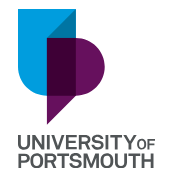About Virtual And Augmented Reality Bsc (hons) in University of Portsmouth
If you're excited by a future filled with Virtual and Augmented Reality technology, this BSc (Hons) Virtual and Augmented Reality degree course is for you.
Designed to reflect the skills and discipline required to excel in the Virtual and Augmented Reality industries, this course lets you get your hands on the latest VR and AR technology and software, and build your knowledge, skills and portfolio at the same time.
The teaching on this course is closely aligned with the latest academic and industry research and discoveries too – so as Virtual and Augmented Reality technology evolves, we'll ensure that what you're learning is the always the latest and most relevant information.
And when you graduate, you'll have highly sought-after skills and provable experience in the field, and you'll be all set to take your first steps towards a fulfilling career in AR, VR or a related industry.
Careers and opportunities
When you finish the course, our Careers and Employability service can help you find a job that puts your skills to work in the industry.
The course is primarily intended to foster graduates with the unique skillset required to become developers in virtual and augmented reality. The University can also offer students significant ties to the industry.
What jobs can you do with a Virtual and Augmented Reality degree?
The skillset that this course will develop will enable our graduates to pursue various roles, including:
- virtual/augmented reality developer
- computer vision architect/engineer
- unity/unreal engine developer
- C++/C# developer
- javaScript developer mixed reality
- interaction engineer
- VR/AR designer
- 3D artist
- 3D modeller
- AR/VR writer
- game developer/designer/programmer
- rendering software engineer
- sound designer
Other graduates have continued their studies at postgraduate level or set up successful businesses with help and support from the University.
After you leave the University, you can get help, advice and support for up to 5 years from our Careers and Employability service as you advance in your career.
Academic qualification equivalents
- If you have an average of 75% or above in the 12 Standard (State Board) examinations or 70% in the Central Board, we'll consider you for admission onto an undergraduate course such as a Bachelor's degree. You must have studied relevant subjects and achieved strong grades.
English language requirements (one of the below):
- IELTS: A minimum of IELTS band 6.0, with no component below 5.5.
- TOEFL iBT: For most of our Bachelor's degrees, you need a score of 79 with a minimum of:18 in Reading 17 in Listening 20 in Speaking 17 in Writing Some courses, especially those with a high level of discussion and writing, require higher scores. You can see course-specific details on the individual course pages.
- PTE: 54 points, with a minimum of 51 in each component.
University of Portsmouth Highlights
| Type of Institution |
Public |
| Campus Setting |
Urban |
| Endowment |
9.9 Lakhs GBP |
| Number of Campuses |
2 - Langstone Campus and University Quarter |
| Percentage of International Students |
26% |
| Total number of Professors |
1,126 academic and Research staff |
| Student Satisfaction Rate |
Secured 88% Student Satisfaction |
| Graduate Job Rate |
97.5% |
| International fee |
£11,250 per annum |
| Type of Academic Programs |
UG, PG, Ph.D., research and Pathway Courses |
| Mode of Program |
Full time |
| Average Graduate Salary |
£13,900 - £15,900 a year |
University of Portsmouth Average Tuition Fees And Other Expenses
| Expenses |
Estimated cost in pounds |
| Undergraduate Fee |
£13,900 – £15,900 approx |
| Postgraduate Fee |
£13,900 – £15,900 approx |
| Accommodation |
£5000 approx |
| Cost of living |
£7000 - £10,000 approx |
| Placement year fee |
£2400 |
